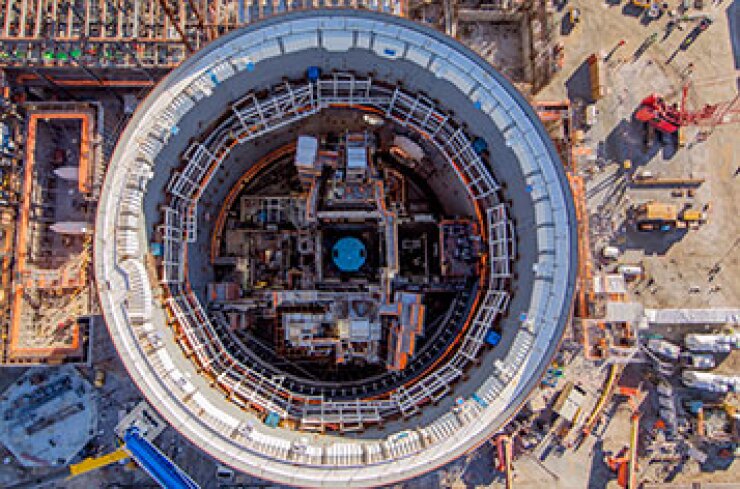BRADENTON, Fla. - For the first time, the Georgia and South Carolina owners of the two nuclear power projects at the core of Westinghouse’s bankruptcy case appear to have diverged in their negotiations.
At Georgia’s Plant Vogtle, the utilities building two new nuclear units approved extending an interim assessment agreement to May 12, according to an

In contrast, the owners building two nuclear units at South Carolina’s V.C. Summer Plant decided to extend their agreements to June 26, SCANA Corp. said in a release, which also includes the South Carolina Public Service Authority’s Santee Cooper.
“The agreement extension allows the co-owners additional time to maintain all of their options by continuing construction on the project, while examining all of the relevant information for a thorough and accurate assessment to determine the most prudent path forward,” SCANA said. “The goal is to reach a decision that would balance the needs of its customers and stakeholders.”
A spokesman for Southern told The Bond Buyer Monday that he could not explain why the projects no longer appear to be moving in tandem.
Both agreements allow construction to continue, and initially were due to expire Friday.
The different interim assessment dates may mean that the Georgia owners prefer tighter deadlines over the evaluation period, and that they plan to do multiple extensions, said bankruptcy attorney Noel Boeke, a partner at Holland & Knight LLP.
“This is not unlike any other bankruptcy where somebody files, and it’s going to cost more to complete the project or they’ve got to get somebody else to complete it,” said Boeke, who is not involved in the case. “It’s still up in the air right now where Georgia and South Carolina are in figuring that out.”
The terms were negotiated before Westinghouse Electric Co. filed for bankruptcy protection on March 29. The company wants to use the Chapter 11 filing to shed billions of debt related to both nuclear projects as their engineering, procurement, and construction contractor.
The Georgia and South Carolina projects have different owners and have been partially financed with municipal bonds. They represent the first U.S. applications of Westinghouse’s newest AP1000 reactor design.
A recent hiccup involving the essential technology, which is considered the “intellectual property,” could present new problems.
The “debtor-in-possession” financing being sought by Westinghouse to pay bills while reorganizing during the Chapter 11 case could threaten the ownership of the AP1000 technology, according to an objection to the DIP financing filed last week by the Georgia plant’s owners, who include the Municipal Electric Authority of Georgia, Oglethorpe Power Corp., and Dalton, Ga.
“The owners object to the DIP financing motion to the extent it proposes to grant the DIP lenders liens on the intellectual property,” which is the technology needed to complete the project at Vogtle, the filing by Jones Day attorney Anna Kordas said.
Kordas also said that the primary purpose of Vogtle’s interim assessment agreement is to preserve the opportunity for the owners to complete the project if they determine that is the best course of action given the circumstances.
“Consistent with that purpose, the owners must continue to have access to the intellectual property, both to complete construction and safely operate the nuclear plant,” Kordas wrote.
Boeke said Georgia’s attorneys may be just alerting the bankruptcy judge to the fact that they still need the intellectual property going forward, whether Westinghouse completes construction or a new contractor finishes the project.
A similar objection has not yet been filed by SCANA or Santee Cooper, although numerous objections have been filed by other creditors.
Several bank consortiums have offered to provide up to $800 million in DIP financing to Westinghouse.
However, none of the funds can be used to pay bills related to the Vogtle or Summer construction projects, according to court documents. Ongoing construction is being funded by the lead investor-owned utilities.
U.S. Bankruptcy Judge Michael E. Wiles has not scheduled a hearing on objections to the DIP financing.
Westinghouse’s consolidated





